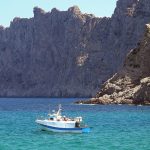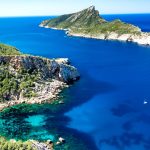Table of Contents
Majorca enjoys a mild Mediterranean climate, making it a popular year-round destination. However, the island’s weather does change in the winter months.
Understanding what to expect from Majorca’s winter and how to prepare will ensure you make the most of your off-season visit.
Understanding the Winter Climate in Majorca
Majorca has a typical Mediterranean climate, characterized by mild, wet winters and hot, dry summers. During winter (December to February), average temperatures range from 8°C to 17°C (46°F to 63°F).
However, cold spells can bring temperatures down to freezing at night, especially in inland areas. Rainfall picks up significantly, though Majorca still sees sunnier days than northern Europe.
The winter climate is heavily influenced by the surrounding sea, which regulates temperatures.
Temperature Trends in Majorca During Winter
December marks the beginning of cooler weather, with average highs of 17°C (63°F) and lows around 10°C (50°F). January and February are the coldest months, with typical daytime highs of 15-16°C (59-61°F) and nighttime lows of 8°C (46°F).
Frost and freezing temperatures are not uncommon, particularly early morning in rural areas like Bunyola. However, afternoons still reach pleasant highs of 15-18°C (59-64°F).
The sea maintains milder temperatures, so coastal areas like Palma tend to stay a bit warmer.
Rainfall Patterns in Majorca Winter
Precipitation increases markedly during Majorca’s winter, with December to February the wettest period. Short downpours are common, delivering 20-30mm of rain over 2-3 hours.
Persistent rain can last a day or two. It’s wise to pack rain jackets and umbrellas even if sunshine is forecast.
Showers often blow through quickly, giving way to clearer skies.
Rainfall typically peaks in December, with averages of 48mm. January and February each see 37-43mm on average.
The Serra de Tramuntana mountains act as a rain shadow, causing more precipitation on the north coast.
Wind Patterns and Their Impact
The prevailing winter wind direction is from the north and northwest. The Tramuntana mountains block these winds from reaching the south and Palma area.
Northern resorts like Pollensa and Alcudia are more exposed.
The famous Tramuntana wind can gust over 100 km/hr, causing notorious winter storms. Southern areas still experience northerly winds but less severely.
Winter also brings easterly and southeasterly winds off the sea. These winds help moderate cold spells but can feel quite blustery.
Snowfall in Majorca: A Rare Phenomenon
Snow is pretty rare in the Majorca lowlands, only occurring once every 20-30 years. Brief flurries usually dust higher mountain peaks during cold snaps.
The last notable snowfall was in February 2021 when parts of the Serra de Tramuntana got 5-30cm.
Villages like Valldemossa and Deia saw brief snow showers.
Don’t expect a white Christmas – snow is nearly impossible at sea level.
Seeking Sunshine in Majorca’s Winter
Despite more grey days, Majorca still enjoys plentiful sunshine in winter. Coastal regions average 6-8 hours of sun daily even in January and February.
Inland areas like Inca see a bit less at 3-4 daily hours due to cloud cover but have warmer temperatures to make up for it.
Winter sun on the protected southern beaches remains strong – ideal for grabbing some midday rays.
Follow the sun by spending mornings in the Tramuntana Mountains and afternoons basking on the beach.
General Weather Conditions in Majorca Winter
Majorca has a spectrum of winter weather. Sunny, dry days with blue skies still occur, especially after spells of wet weather.
But cloudy, showery periods are common too. Due to the surrounding seas, wintertime humidity can be quite high.
Snow and freezing conditions are very rare at sea level.
Temperatures typically fluctuate between 8-17°C (46-63°F) during winter.
Daily ranges are smaller than the scorching summer months. Pack layers and be prepared for quickly changing conditions.
Historical Average Temperatures in Majorca Winter
| Month | Average High | Average Low |
|---|---|---|
| December | 17°C (63°F) | 10°C (50°F) |
| January | 15°C (59°F) | 8°C (46°F) |
| February | 16°C (61°F) | 8°C (46°F) |
These averages are based on historical data from Palma’s airport weather station. Inland locations can be several degrees cooler while the coast stays milder.
Early winter sees warmer temperatures that gradually cool into January and February. However, plenty of days still reach 18-20°C (64-68°F).
Preparing Your Wardrobe for Majorca’s Winter
Majorca winters call for lightweight layers you can add or remove as needed:
- Light jackets – waterproof outer layers for rain and wind
- Long sleeve shirts – wool or fleece for warmth during cool spells
- Scarves, hats, gloves – essential for mountain excursions
- T-shirts & shorts – have summer wear for sunny days
- Pants & long sleeves – for chilly evenings or lingering cold spells
- Swimwear – pack your beach gear to enjoy warmer coastal weather
Adapting Activities to the Winter Weather
While the weather shifts in winter, you can still enjoy Majorca’s outdoors with some seasonal adaptations:
- Hiking – Opt for lower-elevation trails in December and January when the mountains are colder and wetter. Or save mountain hikes for sunny periods after rainfall.
- Boating – Mild seas make winter ideal for sailing, kayaking, and yacht charters. Watch for potential wind and choppier conditions.
- Cycling – Switch to lower elevation routes around Palma, Alcudia, and inland villages.
- Beaches – Sea swimming ends in January but you can still stroll the sand during sunny periods.
- Golf – Majorca’s many golf courses stay open through winter at discounted rates.
- Spas – Pamper yourself with luxurious indoor spa treatments on wet weather days.
Travel Tips for Navigating Winter Weather
Majorca offers seamless travel around the island but the winter rains can complicate transportation:
- Allow extra time for transfers, especially in rural areas prone to closures during extreme rainfall.
- Avoid driving in the mountains during active wind and rainstorms when visibility is poor.
- Check bus schedules in advance as service reduces on some routes in winter.
- Trains offer a reliable option but make sure you have rain gear if walking between stations.
- Taxis are readily available if the weather disrupts your transportation plans.
Safety Considerations for Winter Travel in Majorca
While Majorca winters are mild, it’s important to exercise caution:
- Monitor weather forecasts and avoid the mountains and rural roads during severe wind and rainfall due to landslide risks.
- Watch for slippery floors indoors – carrying a small towel helps wipe wet shoes.
- Bring enough medication to last your whole trip in case winter storms cause travel delays.
- Check in with family back home so they know you arrived safely and have emergency contacts.
Making the Most of Your Winter Trip to Majorca
Majorca winters unlock cheaper hotel rates, fewer crowds, and breathtaking green landscapes after the rains.
With proper preparation for the variable weather, you’re sure to have a magical off-season visit.
Pack smart layers, leave room in your itinerary for flexibility, and soak up the island’s culture during prolonged indoor spells.
No matter the forecast, you’ll keep warm with Majorca’s signature Mediterranean hospitality and lively spirit all winter long.
FAQ
What’s the coldest month in Majorca?
January and February are typically the coldest months, with average lows around 8°C (46°F). Cold snaps can occasionally drop temperatures near or below freezing.
Does it snow in Majorca?
Snow is extremely rare, only occurring once every few decades during an exceptionally cold spell. Light dustings may fall in the mountains but snow at sea level is near impossible.
How much rain falls in Majorca during winter?
December is the wettest month with around 48mm on average. January and February each see 37-43mm typically. Brief heavy downpours are common.
What’s the best way to get around Majorca in winter?
Rental cars provide the most flexibility for navigating changing conditions. Public buses connect main towns reliably but reduce service on some routes.
Are the beaches still nice to visit in winter?
Swimming generally ends in January due to colder seas. But sunny periods allow for enjoying beach strolls and soaking up warmth in protected southern coves.

Mark Kaye is a travel writer and content creator living in Majorca, Spain. Originally from the UK, Mark moved to the island and quickly fell in love with Majorcan culture, food, and scenic landscapes. When he’s not busy writing detailed guides about Majorca’s top tourist attractions and hidden local gems, you can find him out exploring coastal trails or wandering the streets of Palma’s Old Town in search of his next great restaurant discovery.







